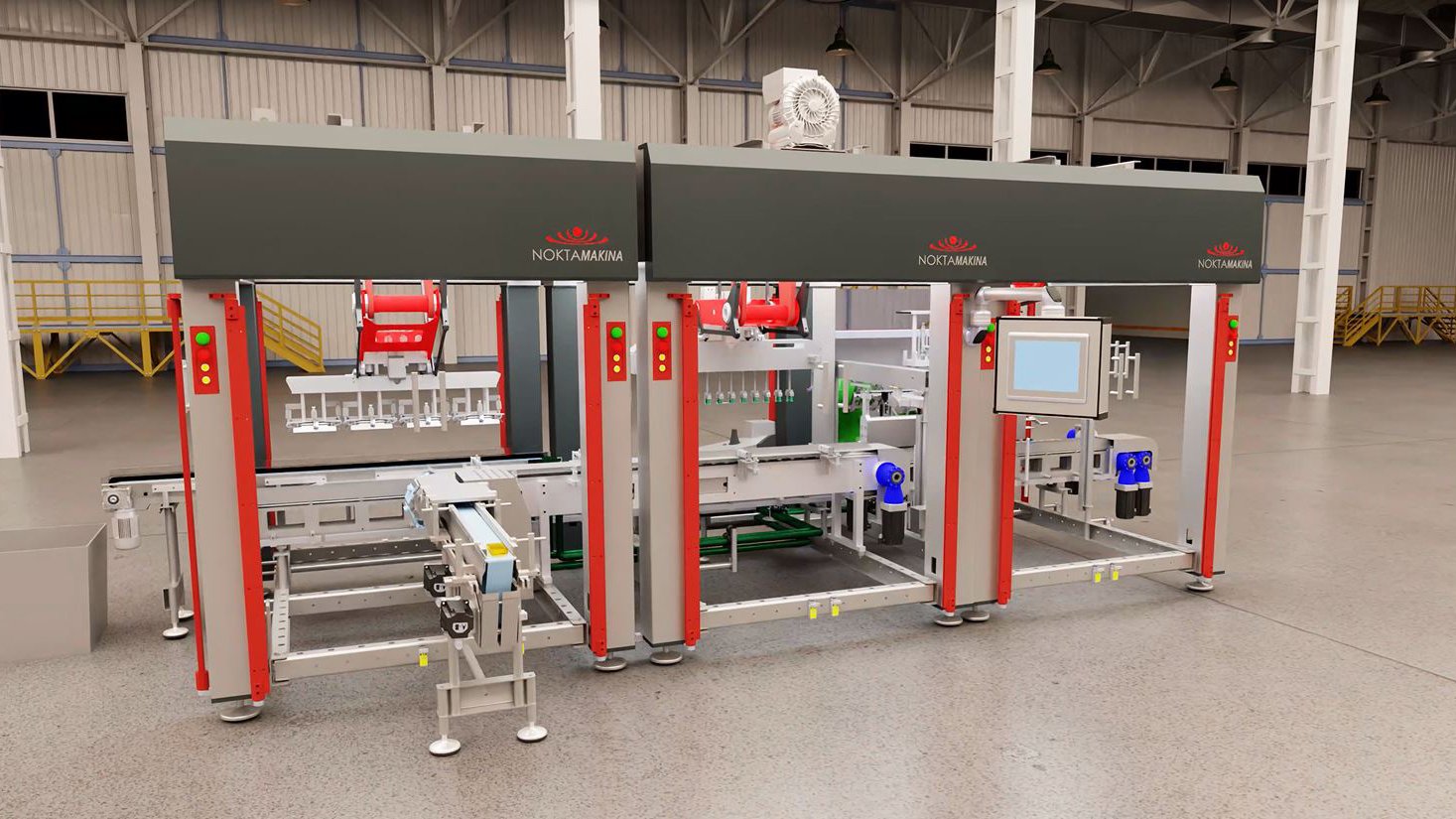Nokta Makina has over 30 years of engineering experience. Based in Turkey, the company offers versatile packaging solutions with its servo-motorized packaging machines.

- Nokta Makina was looking to leverage digital technologies to streamline in-house and customer capabilities.
- Design, build, test, install and commission are all faster and easier
- Integration into customer system is simpler
- Export potential is boosted
- Emulate3D Digital Twin software is delivering efficiencies, insights and faster throughput at all lifecycle stages – from sales through to commissioning
In todays’ competitive market, machine builders cannot afford to simply keep pace. Instead, they must set the pace and offer features, functionality, and operational outcomes that address and, when possible, surpass all their customers’ needs... and more.
A case in point is Nokta Makina, a Turkish packaging and wafer-line machine specialist and member of the Rockwell Automation PartnerNetwork™ as a gold-level OEM.
Although the company enjoys a prominent position as one of the country’s leading machine builders, it knew it could do so much more; not just to streamline and enhance its own in-house capabilities, but also to improve the insights, products, and services it offered its customers.
Based in İstanbul in Türkiye, the company explains that it is undergoing a digital transformation, which is dictating this developmental roadmap and evolution relating to machine design and its ability to integrate into its customers’ smart factories. A prime outcome is optimized machine and process functionality and capacities, to reduce and remove unnecessary waste and cut operator interventions.
Challenge
The primary challenge the Turkish OEM faced was its multi-vendor approach to its deployment of automation assets. This lack of standardization created issues relating to design, integration, test, and eventual commissioning.
It also faced additional bottlenecks at the commissioning phase, as it had to wait until its machines had been delivered and installed before full commissioning could take place.
Solution
Nokta Makina’s first task was to rationalize its automation technologies. This led to it standardizing on the Integrated Architecture® system from Rockwell Automation, which includes programmable automation controllers, HMIs, I/O, drives, and software that all use the same foundation and talk the same language.
By adopting this approach, Nokta Makina can design and deploy machine-, line-, and enterprise-level industrial control systems that support scaling and the convergence of control and information data, to deliver smarter technology, enhanced productivity, and a more secure environment.
To address its commissioning challenges, the technical team at Rockwell Automation suggested the deployment of the Emulate3D digital twin software.
By creating virtualized models and simulations, that feed off application-specific physics, product, PLC code and process variables, engineers at Nokta Makina are able to undertake significant levels of testing, simulation, problem solving, and automation commissioning, even before any metal has been cut.
Result
Nokta Makina’s decision to standardize on Rockwell Automation platforms for its machine design, development, test, and operation has not only accelerated its digital transformation, but also helps simplify and expedite integration into its customers smart operations, helping them to optimize their own production processes.
In addition, with so many leading multinational companies and household brands around the world standardizing on Rockwell Automation solutions, doors open for wider market penetration and export potential.
And, thanks to the deployment of the Emulate3D software, customers can get a more immersive appreciation of the company’s machines, even at the initial sales stage, where design iterations can be assessed, challenges can be addressed much earlier, issues can be solved at a less costly stage of development, and time, effort & budget can be saved.
According to Ahmet Yol, technical manager at Nokta Makina:
“Not only have we shortened our programing time, but we have also seen fewer design issues, which could occur at project stages that are far harder to remedy. We have also been able to increase machine capacity and streamline machine integration, all while making them easier to use.”
Published April 8, 2024

